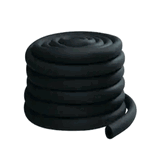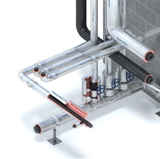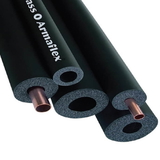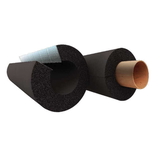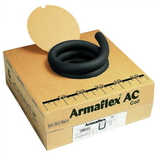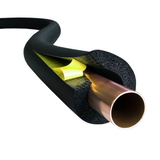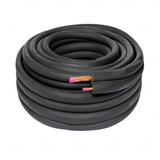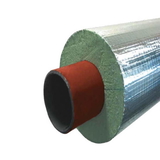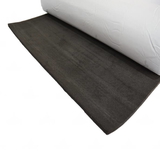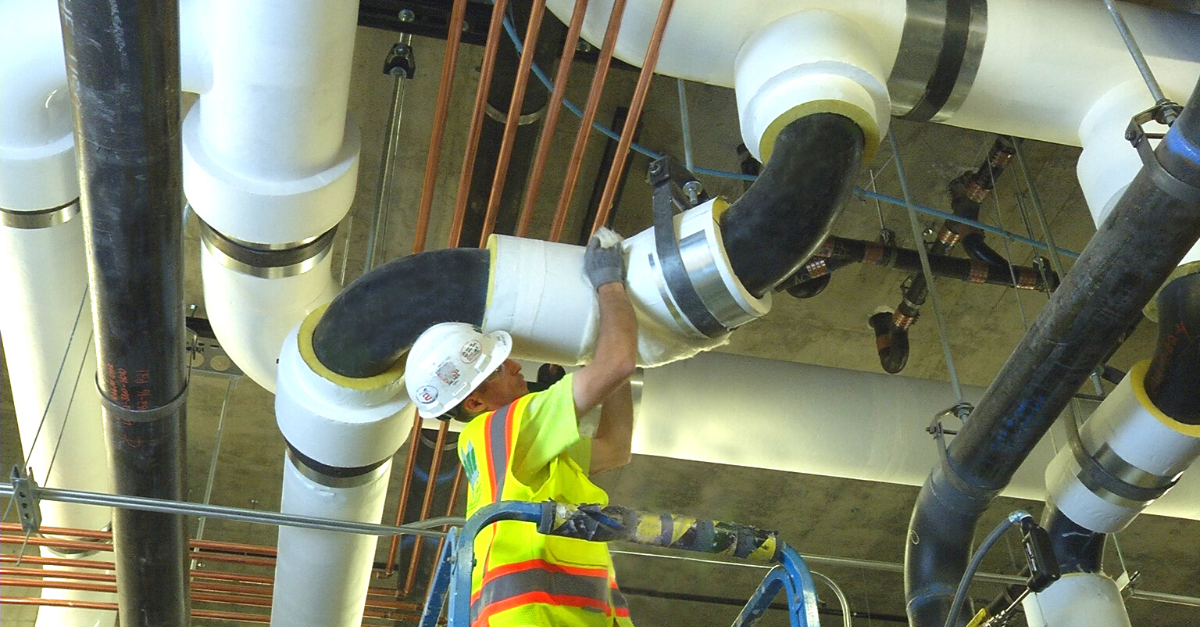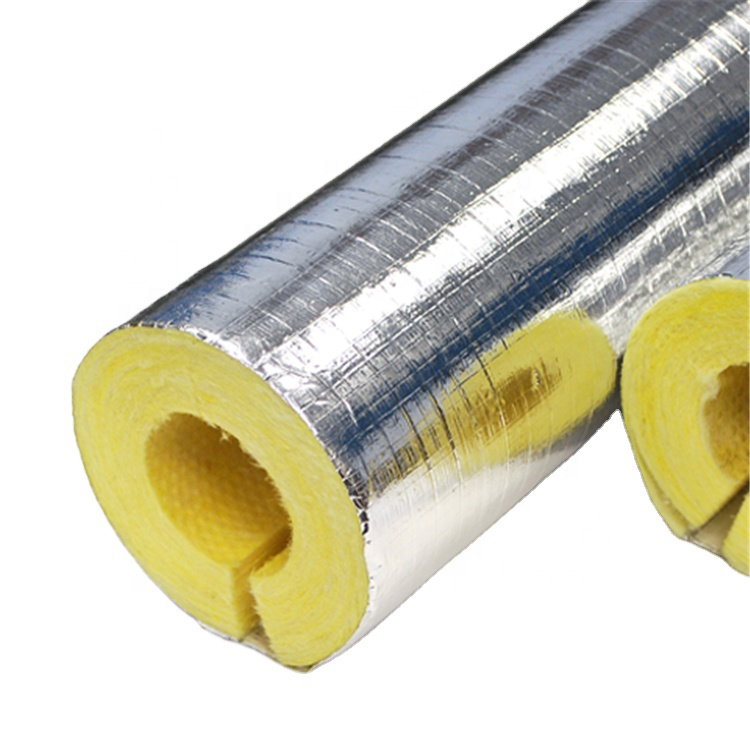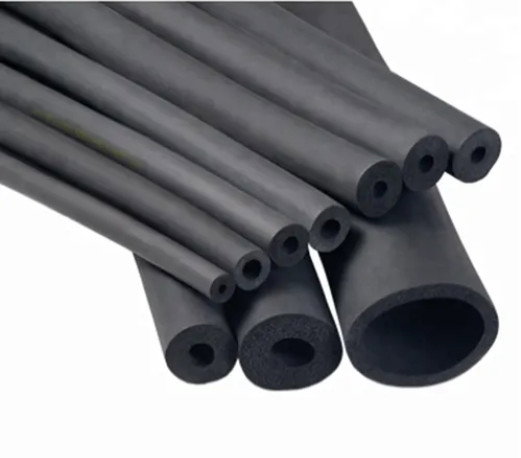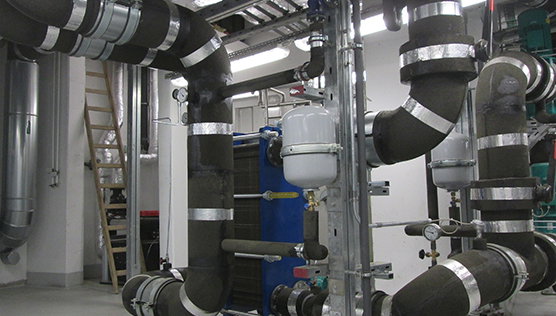- Blogs
- Chilled Water Pipe Insulation - A Brief Guide
Chilled Water Pipe Insulation - A Brief Guide
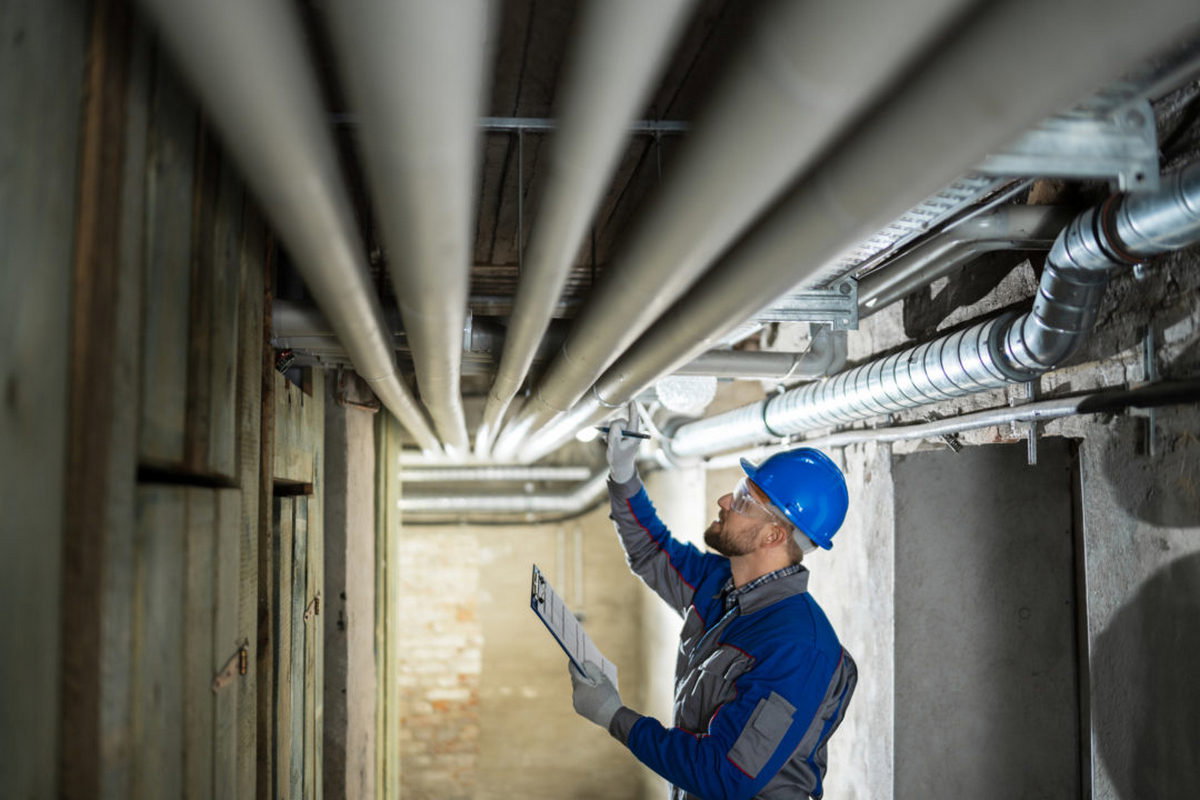
With rising energy costs and a growing focus on sustainability, it has become crucial for businesses and homeowners alike to explore effective strategies to conserve energy and reduce carbon emissions. Insulation is one such strategy that needs to be readily explored.
The need of the hour is to insulate nearly every component of a building correctly and with suitable materials. The UK's climate, characterised by warm summers and cold winters, demands efficient cooling systems in various sectors, including commercial buildings, hospitals, data centres, and industrial facilities.
Chilled water systems are widely used for air conditioning and refrigeration purposes, making pipe insulation a crucial component in maintaining optimum performance and minimising energy wastage.
Properly insulated chilled water pipes offer numerous advantages, including reduced heat gain or loss, increased system efficiency, enhanced comfort levels, and lower operating costs. By preventing temperature fluctuations and condensation issues, pipe lagging also helps prevent damage to the pipes and extends their lifespan.
In this article, we will explore the key benefits of chilled water pipe insulation, its relevance to the UK climate, and the potential energy and cost savings it can offer. Let's begin!
What Are Chilled Water Systems?![]()
Chilled water systems are central cooling systems that use chilled water as a medium to transfer heat away from spaces, equipment, or processes that require cooling. They work by circulating chilled water through a network of pipes to provide cooling in various applications such as air conditioning in buildings and cooling processes in industrial facilities. The purpose is to regulate temperatures for comfort, process requirements, or equipment operation while offering energy efficiency and scalability.
Why Insulate Chilled Water Pipes?
Insulating chilled water pipes is essential for several reasons:
-
Energy Efficiency: Lagging pipework helps prevent heat gain or loss from the chilled water pipes. Without thermal insulation, the ambient heat can infiltrate the pipes, causing the chilled water to warm up. This leads to increased energy consumption as the chiller has to work harder to maintain the desired temperature. Insulating the pipes reduces heat transfer, improving the overall energy efficiency of the system and reducing operating costs.
-
Temperature Maintenance: Insulation helps maintain the chilled water at the desired temperature throughout the distribution network. By minimising heat exchange with the surrounding environment, pipe insulation ensures that the chilled water remains consistently cool from the chiller to the cooling points. This contributes to more efficient cooling performance and helps meet the temperature requirements of the intended applications.
-
Condensation Prevention: Chilled water pipes can experience condensation when the surface temperature of the pipes is lower than the dew point of the surrounding air. Pipe lagging acts as a barrier, preventing the formation of condensation on the pipe's surface. Condensation can lead to issues such as water damage, corrosion, and reduced insulation effectiveness. Proper insulation mitigates these risks and helps maintain the integrity of the pipes.
-
System Protection and Longevity: Pipe lagging provides a protective layer for chilled water pipes. It shields the pipes from external factors such as moisture, temperature fluctuations, and physical damage. By reducing thermal stress and preventing moisture accumulation, insulation helps extend the lifespan of the pipes, reducing the need for repairs or replacements.
-
Improved Comfort and Performance: Insulated chilled water pipes help ensure consistent cooling performance and temperature control in buildings or processes. By minimising heat loss or gain, insulation helps maintain a comfortable and controlled environment for occupants. It also enhances the efficiency of cooling equipment, reducing the strain on the chiller and improving its performance and reliability.
Chilled Water Pipe Insulation Types:
Several different insulating materials can be used to insulate chilled water pipes including:
1. Fibreglass Insulation: ![]()
Fiberglass insulation is a popular choice for pipe insulation. As the name suggests it is made of fibreglass or glass mineral wool and often has aluminium foil facings that offer extra protection against moisture ingress and condensation. Fibreglass pipe insulation provides good thermal resistance and is available in various thicknesses to suit different insulation requirements.
At Buy Insulation Online, we stock Isover Climpipe supplied in lengths of 1.2M. It can be used to insulate chilled water pipes functioning in temperatures as low as 5°C.
2. Foam Insulation:
Foam insulation, such as polyethene foam is another commonly used material for chilled water system insulation. Foam pipe insulation comes in the form of pre-formed tubes about 1M or 2M long. It offers excellent thermal insulation properties, moisture resistance, and can provide a seamless and airtight insulation layer.
3. Elastomeric Nitrile Rubber Insulation:![]()
Elastomeric insulation is a flexible, rubber-like material commonly used for insulating chilled and cold water pipes. It is available in the form of tubes or sheets that can be easily wrapped around the pipes. Elastomeric insulation offers good thermal insulation properties and can be used to insulate pipes functioning in temperatures as low as -50°C.
At Buy Insulation Online, we stock top-quality rubber pipe insulation from leading brands like Armaflex and K-Flex.
4. Mineral Wool Insulation:
Mineral wool insulation, like Paroc or Rockwool Pipe Insulation, is made from natural or synthetic minerals that are melted and spun into fibres. Mineral wool insulation offers good thermal insulation properties, fire resistance, and sound absorption capabilities.
5. Phenolic Foam Insulation: ![]()
Phenolic foam pipe insulation like Kingspan Kooltherm, can be used for chilled water pipe insulation. Phenolic foam is a type of rigid insulation material that offers excellent thermal properties, including low thermal conductivity, making it an effective choice for insulating chilled water pipes.
Phenolic foam insulation is known for its high resistance to heat transfer, which helps to minimise energy loss and maintain the desired temperature of the chilled water. It also has good fire resistance properties, making it a suitable option for applications that require fire safety considerations.
Frequently Asked Questions:
What thickness of pipe insulation for chilled water pipes?
The recommended thickness of pipe insulation for chilled water pipes in the UK can vary depending on factors such as the desired temperature of the chilled water, the pipe material, and the specific application. However, a common guideline for chilled water pipe insulation thickness in the UK is typically in the range of 25mm to 50mm (1 inch to 2 inches).
The goal is to achieve efficient insulation and prevent excessive heat gain or loss from the pipes. Thicker insulation generally provides higher thermal resistance and better energy efficiency.
Which insulation is best for chilled water pipes?
The choice of the best insulation for chilled water pipes depends on specific project requirements, such as temperature control, insulation thickness, fire safety regulations, and budget constraints. All of the above-discussed HVAC insulation materials can be used to insulate chilled water pipes, the right choice, however, would depend on the project.
What are the Chilled Water Pipe Insulation Regulations in the UK?
In the UK, the regulations and guidelines related to chilled water pipe insulation are primarily outlined in the Building Regulations Part L and the CIBSE (Chartered Institution of Building Services Engineers) Technical Memorandum 43 (TM43). These regulations provide guidance on energy efficiency and thermal insulation requirements for buildings, including chilled water systems.
Chilled Water Pipe Installation - DIY or Professional Installer? ![]()
While it is possible to undertake chilled water pipe insulation as a do-it-yourself project, professional help is often recommended to ensure proper installation and optimal results. Here are some factors to consider:
-
Expertise and Experience: Professionals, such as insulation specialists or mechanical contractors, have the knowledge and experience to assess insulation requirements, select appropriate materials, and perform accurate installations. They can provide valuable guidance on insulation thickness, material compatibility, and installation techniques specific to chilled water pipe systems.
-
Compliance with Regulations: Chilled water pipe insulation may need to meet specific regulations and standards, such as those outlined in the Building Regulations Part L in the UK. Professionals are familiar with these requirements and can ensure compliance during the installation process.
-
Efficiency and Performance: Professional installers have the expertise to properly seal and secure insulation, minimising heat transfer and ensuring optimal energy efficiency. Their attention to detail can help avoid potential issues like gaps or thermal bridging, which can compromise the insulation performance.
-
Safety Considerations: Chilled water systems involve working with pipes that may contain cold water, and safety precautions should be taken. Professionals are trained to handle insulation materials and installation procedures safely, reducing the risk of accidents or injuries.
That being said, if you have the necessary knowledge, skills, and experience, and feel confident in undertaking the insulation work yourself, it is possible to proceed without professional help. However, always ensure you are well informed about the specific requirements, regulations, and best practices for chilled water pipe insulation before proceeding with a DIY approach.
Regardless of whether you choose professional help or not, it is essential to follow relevant regulations, manufacturer instructions, and industry best practices to achieve effective insulation and maintain system performance.
In Conclusion:
In conclusion, chilled water pipe insulation plays a crucial role in maintaining the performance and efficiency of chilled water systems. By preventing heat gain or loss from the pipes, lagging helps to optimise energy usage, reduce operating costs, and ensure consistent cooling performance. It also helps to prevent condensation issues, protect the pipes from damage, and extend their lifespan.
Proper research while choosing the appropriate insulation material and thickness is essential. Professional guidance and compliance with applicable regulations are vital. Consulting with experts and ensuring proper installation is necessary for achieving optimal insulation performance and meeting energy efficiency targets.
Chilled water pipe insulation is a valuable investment for improving energy efficiency, reducing environmental impact, and maintaining reliable cooling systems. By implementing effective insulation strategies, you can enhance comfort, save energy, and contribute to a sustainable future.
For top-rated chilled water pipe insulation from leading brands in the UK, visit Buy Insulation Online. Along with various pipe lagging and pipe insulation accessories, we also stock valve covers and cheapest duct insulation range that can help improve the thermal efficiency of your overall HVAC system.

Samuel Hitch
Managing Director
Buy Insulation Online.
Leave A Reply
Your feedback is greatly appreciated, please comment on our content below. Your email address will not be published. Required fields are marked *
